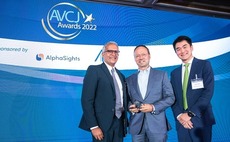
Q&A: Hony Capital's John Zhao
Hony Capital CEO John Zhao expects to see more control opportunities arising from domestic succession planning, cross-border expansion and restructuring. He explains how his firm is preparing the ground
Q: What progress have you seen in terms of buyout opportunities?
A: As China continues to mature we see three sets of buyout opportunities. One is the growing number of privately-held companies where the owners want to sell the business because there is no successor to take over. The majority of private entrepreneurs pass their businesses on to their children but a substantial number will cash out. Second, as China becomes more global there will be more buyouts by entities like Hony that want to exert control over products and services that better serve the Chinese market. The third set will be restructuring opportunities. On the succession planning side, we led a consortium of that spun out the medical equipment business of IT services provider Neusoft Corporation. We have also formed management groups targeting buyouts in two focused - but very large - sectors: branded fast food franchises and community hospitals. Finally, we have participated in take-private deals for online game developer Giant Interactive and drug developer Simcere Pharmaceutical, both of which were US-listed. We consider these to be cross-border control deals, as was our acquisition of Pizza Express.
Q: Do the fast food and hospital platforms represent a template for Hony's approach to buyouts in general, or are these simply two areas in which you expect to do a lot of rolls ups?
A: It is more of the latter. We only do this in sectors where we think there is going to be increasing demand in the lower- to mid-tier segment of the market, which is highly fragmented. We target sectors where a roll up is an effective strategy, but it is not template for all buyouts.
Q: How competitive is the hospital sector and what does this mean for deal access?
A: It really depends on the specific strategy. There have been a lot of control investments in specialty chains, whereas our strategy is to target community hospitals covering basic services. We are the first ones to try and do this. It is a difficult because it requires good sector insight in different regions, and then a lot of resource aggregation. What makes it attractive to us is the fact that there is a lot more consumption and demand for services in the mainstream. The sooner we crack the code, the easier it will be to target future opportunities.
Q: In terms of bringing foreign brands into China, which sectors are particularly attractive?
A: When bringing brands to China we want to make sure we can amass the necessary resources, in addition to the capital, to aid expansion. In the case of fast food chains we have our management platform, which is good for Pizza Express. In areas where we don't have a management group, we want to work with an existing portfolio company that has a strong China presence. A case in point is Shanghai Jin Jiang International Hotels, which we helped acquire Louvre, the France-headquartered European hotel chain. In this instance the thesis runs both ways. We can help Louvre penetrate the Chinese market, because it has Europe-based clientele wanting to come to China, and then Chinese tourists want to utilize hotels in other locations around the world.
Q: Does STX Entertainment come under the cross-border strategy category?
A: Absolutely, we have invested heavily in media and entertainment sector. We previously bought into Shanghai Media Group and that served as the basis for plans to expand into Hollywood. STX has also secured a three-year financing deal with China's Huayi Brothers Media Corp
Q: You have also invested in online TV provider PPTV. Is there an effort to create an integrated entertainment consumption channel in China?
A: Given that intersection between internet media and content creation segment is so hot, there will be a lot more demand for content there will be more ways to disseminate that content to consumers via mobile internet. PPTV is at a critical spot in this intersection. We are actively developing our business while entertaining proposals or movements in the markets. Anything can happen there.
Q: You recently exited Hong Kong-listed ChinaSoft International and CSPC Pharmaceutical. What impact did the suspension on new share listings in the domestic market have on Hony?
A: Is has been a big problem. When we raised our first renminbi-denominated fund in 2008 alongside the US dollar fund, we decided to put more emphasis on domestic stock exchanges. So we started to construct our portfolio, for both funds, with a view to doing a lot of onshore exits. When the IPO door was shut, it had a huge negative impact on the industry. Luckily the market and has now reopened and there is a lot of pent up demand. We are seeing a bit of relief but there is a long way to go before the Chinese exchanges become deeper, better and more liquid.
Q: What are your views on the move towards a disclosure-based approvals system for IPOs?
A: It is a great move - and a necessity. The new third board is adapting advanced concepts that have been practised in Hong Kong and New York for a long time. Although the new third board is small, it can make a huge impact on China's capital markets. The way they are structuring the disclosure requirements so they are more market-driven is the right way to think about this.
Q: The regulators also want to see more technology companies going public domestically. What does this mean for the established US route?
A: I hope there will be more options for China-based tech companies; that is better for the market in the long run.
Latest News
Asian GPs slow implementation of ESG policies - survey
Asia-based private equity firms are assigning more dedicated resources to environment, social, and governance (ESG) programmes, but policy changes have slowed in the past 12 months, in part due to concerns raised internally and by LPs, according to a...
Singapore fintech start-up LXA gets $10m seed round
New Enterprise Associates (NEA) has led a USD 10m seed round for Singapore’s LXA, a financial technology start-up launched by a former Asia senior executive at The Blackstone Group.
India's InCred announces $60m round, claims unicorn status
Indian non-bank lender InCred Financial Services said it has received INR 5bn (USD 60m) at a valuation of at least USD 1bn from unnamed investors including “a global private equity fund.”
Insight leads $50m round for Australia's Roller
Insight Partners has led a USD 50m round for Australia’s Roller, a venue management software provider specializing in family fun parks.








